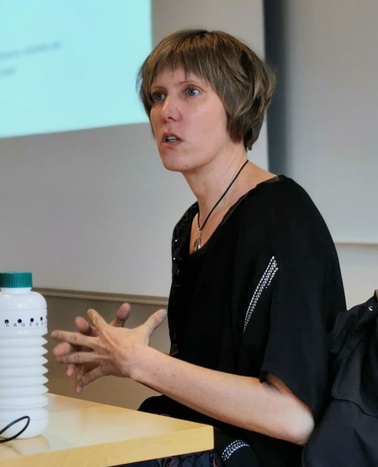
Nina Wiesehomeier
Having completed my PhD at the University of Konstanz in Germany, I’ve crossed the Atlantic in both directions over the course of my career. I have lived and worked in the United States, lecturing at the University of Notre Dame where, during the 2008–2009 academic year, I was a visiting fellow at the Kellogg Institute for International Studies. Later, I was a research fellow at the Instituto de Ciências Sociais da Universidade de Lisboa in Portugal, before becoming a senior lecturer at Swansea University in the UK, and finally moving to IE University. In my free time, I take every opportunity to enjoy the outdoors with long, peaceful hikes—or put on my boxing gloves and spar at my local gym.
"Open-mindedness, perseverance and a willingness to make mistakes and overcome setbacks is vital for personal growth. It’s what you make of these experiences."
Nina Wiesehomeier: sparring with politics on both sides of the pond
Nina Wiesehomeier sees her research and her teaching as intrinsically linked. Her interests are in political parties, political institutions, and political representation, with a focus on Latin America.
She describes herself as having a particular interest in human and political behavior, exploring the representation of women, populism and ideology in her work. These topics can be gathered under comparative politics, which is at the core of her current teaching.
She says that her students often wonder why they’re studying a subject that does not deal with international relations in the narrow sense. But Nina is a strong proponent of the idea that to understand politics at the international level, it’s vital to understand the dynamics of national politics first. She cites the United Kingdom’s decision to leave the EU as a prime example, adding that in times of crisis—such as during the COVID-19 crisis—national policies can shape international responses. At the end of the day, she adds that comparative politics studies events and phenomena within countries, rather than the politics between different countries.
In the current climate of heightened political tensions and increasingly partisan rhetoric, comparative politics is more important for political education than ever. Nina regards it as, “…an essential part of the education of any aspiring professional with an international outlook and a keen interest in cross-border affairs.
In her free time, Nina likes to box and is also a big fan of the outdoors. She finds long hikes relaxing and particularly beneficial for her mental and physical well-being. After all, she’s a big foodie, and uses her hikes to walk off her indulgences!
Check out in detail Nina Wiesehomeier's academic and corporate experience
Check out in detail Nina Wiesehomeier's academic and corporate experience

WANT TO KNOW MORE ABOUT THE BACHELOR IN INTERNATIONAL RELATIONS PROGRAM?
WANT TO KNOW MORE ABOUT THE BACHELOR IN INTERNATIONAL RELATIONS PROGRAM?